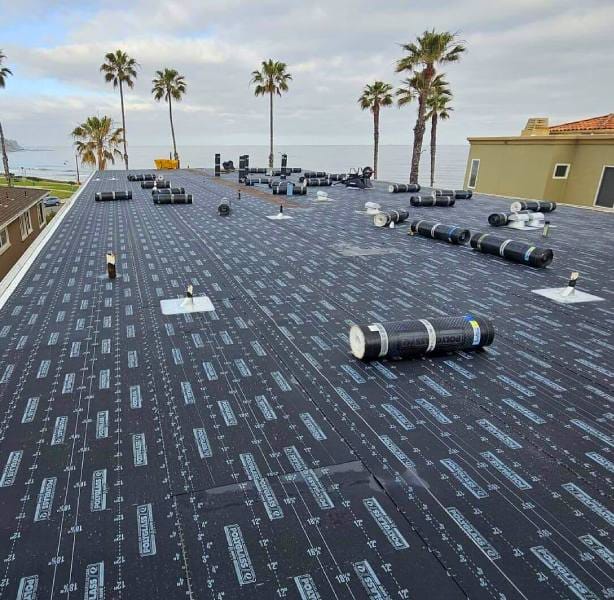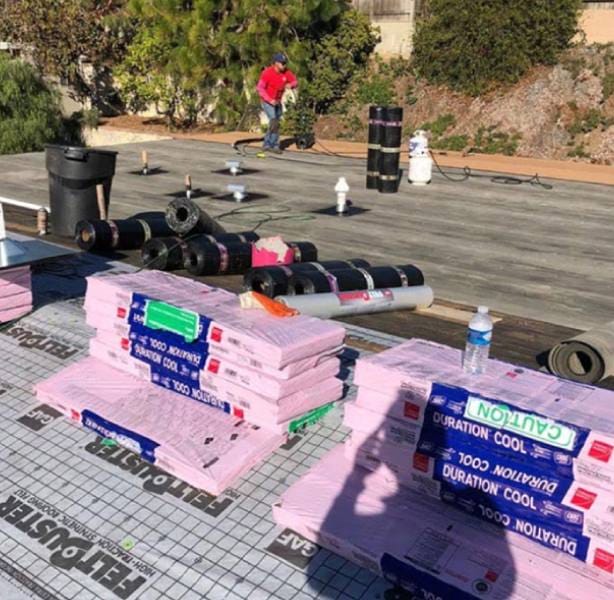What Is The Best Roof For A Commercial Building?
Introduction
Selecting the right roofing solution for a business property in the Seattle area is crucial. It affects not only curb appeal but also utility bills, longevity, and ongoing upkeep. From TPO and EPDM membranes to green roofing systems, the range of commercial roofing materials can feel overwhelming. This guide will help you understand what makes a roof ideal for Seattle commercial properties and how to choose the best option for your project.
What Is The Best Roof For A Commercial Building?
When people search for “Which commercial roofing system works best in Seattle neighborhoods like Ballard or Capitol Hill?”, the answer depends on a few key considerations:
Factors Influencing Roofing Choices
1. Type of Building Structure
The structure itself often dictates what roofing systems are feasible. Flat roofs are common for distribution centers in Georgetown, while sloped roofs are preferred for restaurants in Greenwood.
2. Local Climate Conditions
Seattle’s rainy reputation means you’ll need materials that provide excellent drainage. Metal panels and TPO membranes are favored for their weather resistance.
3. Budget Considerations
Low-budget systems like BUR may appeal initially, but premium options like metal or single-ply membranes offer lower lifecycle costs in areas like Rainier Valley.
4. Energy Efficiency Needs
Reflective roofing membranes and insulated panels help reduce HVAC costs, especially in Fremont commercial offices and tech buildings.
Types of Roofing Materials for Commercial Buildings
1. Metal Roofing
Sustainable and tough, metal roofing systems can last over 30 years and are commonly used by commercial roofing contractors in Seattle for their resilience.
Advantages:
- Performs well in wet conditions
- High solar reflectivity
- Minimal maintenance
Disadvantages:
- Upfront installation costs
- Noise during rainfall (mitigated with insulation)
2. Built-Up Roofing (BUR)
Tar and gravel roofs offer reliable waterproofing, especially for flat rooftops in urban zones like Interbay or SoDo.
Advantages:
- Affordable installation
- Great water resistance
Disadvantages:
- Heavy weight may require support reinforcements
- Not ideal for sloped applications
3. Single-Ply Membrane Roofing
Products like EPDM and TPO are lightweight and popular among Seattle commercial roofing contractors for their energy efficiency and affordability.

Advantages:
- Easy installation
- UV and heat reflective
Disadvantages:
- Vulnerable to punctures
- Periodic inspections required
4. Modified Bitumen Roofing
This asphalt-based roofing is often used in smaller retail buildings where a durable, bonded seal is important.

Advantages:
- Strong bond with base layers
- Resists UV exposure
Disadvantages:
- Needs skilled installation
- Shorter lifespan than TPO or metal
5. Green Roofs
Popular in modern and environmentally-conscious buildings in Fremont, green roofs help with stormwater management and insulation.
Advantages:
- Eco-friendly and insulating
- Boosts property value
Disadvantages:
- High initial costs
- Requires professional maintenance
Selecting a Commercial Roofing Contractor in Seattle
Whether you’re in Greenwood, Interbay, or Beacon Hill, finding qualified commercial roofing contractors in Seattle is critical to a commercial roofing contractor options successful install.
1. Research Local Options
Search “Seattle commercial roofing contractors” on Google Maps and read reviews across neighborhoods.
2. Verify Credentials
Make sure your Seattle roofing contractor carries proper licensing and insurance.
3. Ask for References
Experienced contractors should have examples of completed work in your area or industry.
4. Get Multiple Quotes
Comparing bids from 3–4 contractors helps ensure competitive pricing and transparency.

Cost Comparison by Material Type
| Roofing Type | Average Cost per Square Foot | Lifespan | |----------------------|-----------------------------|--------------| | Metal | $5 - $12 | 30+ years | | Built-Up | $3 - $6 | 20 - 30 years| | Single-Ply Membrane | $4 - $8 | 15 - 25 years| | Modified Bitumen | $3 - $7 | 10 - 20 years| | Green Roof | $10 - $25 | 40+ years |
Maintenance Considerations for Commercial Roofs
1. Regular Inspections
Schedule bi-annual inspections from a trusted Seattle commercial roofer to catch issues early.
2. Clean Gutters
Blocked gutters are especially problematic in Seattle’s rainy climate. Keep them clear to protect your roof.
3. Address Repairs Promptly
Whether you notice water pooling or membrane punctures, call certified contractors ASAP.
FAQs About Commercial Roofing
What is the most durable roofing material for commercial buildings?
Metal roofing stands out for its durability and long-term value, especially for businesses in wetter climates like Seattle.
How much does it cost to replace a commercial roof?
Depending on the material and square footage, Seattle-area roof replacements range from $3 to $12 per square foot.
How long do commercial roofs typically last?
Flat roofs generally last 10–20 years, while metal options can exceed 30 years with proper maintenance.
Are green roofs worth the investment?
Absolutely, especially in urban Seattle districts. They provide insulation, stormwater benefits, and aesthetic appeal.
Can I install a new roof over an existing one?
Yes, but consult a local contractor to ensure compliance with local permitting laws.
How do I choose between flat and pitched roofs?
Consider your business type, local climate, and long-term costs before deciding.
Conclusion
Determining "What Is The Best Roof For A Commercial Building?" in Seattle involves assessing building type, local weather, budget, and energy savings. Every property is unique—what works in Ballard may not suit Beacon Hill.
Whether you're renovating an office space in Belltown or constructing a new retail center in Capitol Hill, the right roof starts with expert advice. Reach out to experienced commercial roofing contractors Seattle today to schedule your consultation!